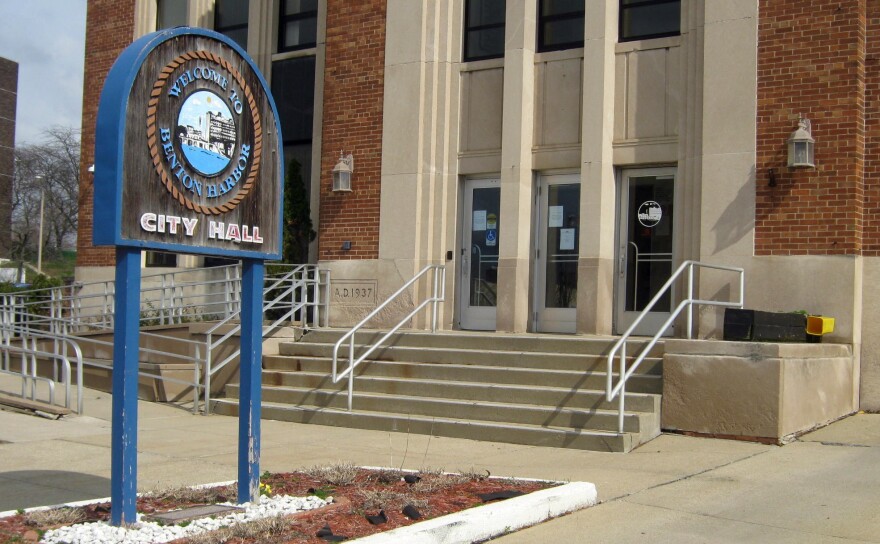Benton Harbor residents have been inundated with challenges facing their water system for years: Lead in pipes. Ineffective corrosion treatment. Threats of water shut-offs. Piled one on top of another.
Some relief is at hand. Following years of public interest campaigning, two years of construction, and $45 million in federal aid, almost all of Benton Harbor’s lead pipes have been replaced. The U.S. Environmental Protection Agency last month confirmed that Benton Harbor complies with safe water requirements. The measurements showed that the levels of lead are not hazardous.
Another hardship, though, has emerged in its place: more expensive water bills. Residents were told that in the next five years, water bills will grow 10 percent annually.
Rev. Edward Pinkney, an influential community organizer who helped lead the work to solve the lead emergency, said that a couple of years ago his water bill was around $40 a month. Now it is about $75. In five years, it will be around $120 if the 10 percent annual increase persists.
One of the main reasons for the increase is that Benton Harbor’s drinking water plant lost a third of its customer base after neighboring St. Joseph and Benton Township disconnected from the system, said Elin Warn Betanzo, president of Safe Water Engineering, a consulting firm. Right before that, the water plant made an expensive update to the infrastructure.
The burden of paying for it fell on the Benton Harbor residents. “The state played a role in removing their ratepayer base,” Betanzo said. “Benton Harbor would not be in this situation today if it wasn’t for the state’s decision. So they need public health protection, they need water system upgrades, and it can’t be supported only by the community through 10% annual rate increases.”
The plant still needs “millions of dollars of upgrades that they need to do over the next five to ten years,” according to Betanzo.
Reflecting on the government’s actions, Rev. Pinkney said: “What happened in the city of Benton Harbor, we hope and pray that does not ever, ever happen to anyone else. Because the government knew the problem and did nothing until we pressured them to do something.”
Cyndi Roper, senior policy advocate with the Natural Resources Defense Council, based in Chicago, said that communities like Benton Harbor have water trauma. “Their trust was violated. And so the question of whether or not they trust the tap water, with or without the filters, is another part of the equation and some people don’t trust the filters, and so they still want bottled water.”
She added, “In a water trauma community, it’s really important to be able to respond in a way that the residents are most comfortable with being able to ensure that they are getting their hydration, cooking, and other needs met.”
Benton Harbor is not alone in its struggle to address water affordability. Around 200 communities across Michigan are overburdened with the cost of the water infrastructure.
The battle for safe water is ongoing and requires community attention. Rev. Pinkney said: “Make sure that you hold your government accountable for their actions and inactions.”






